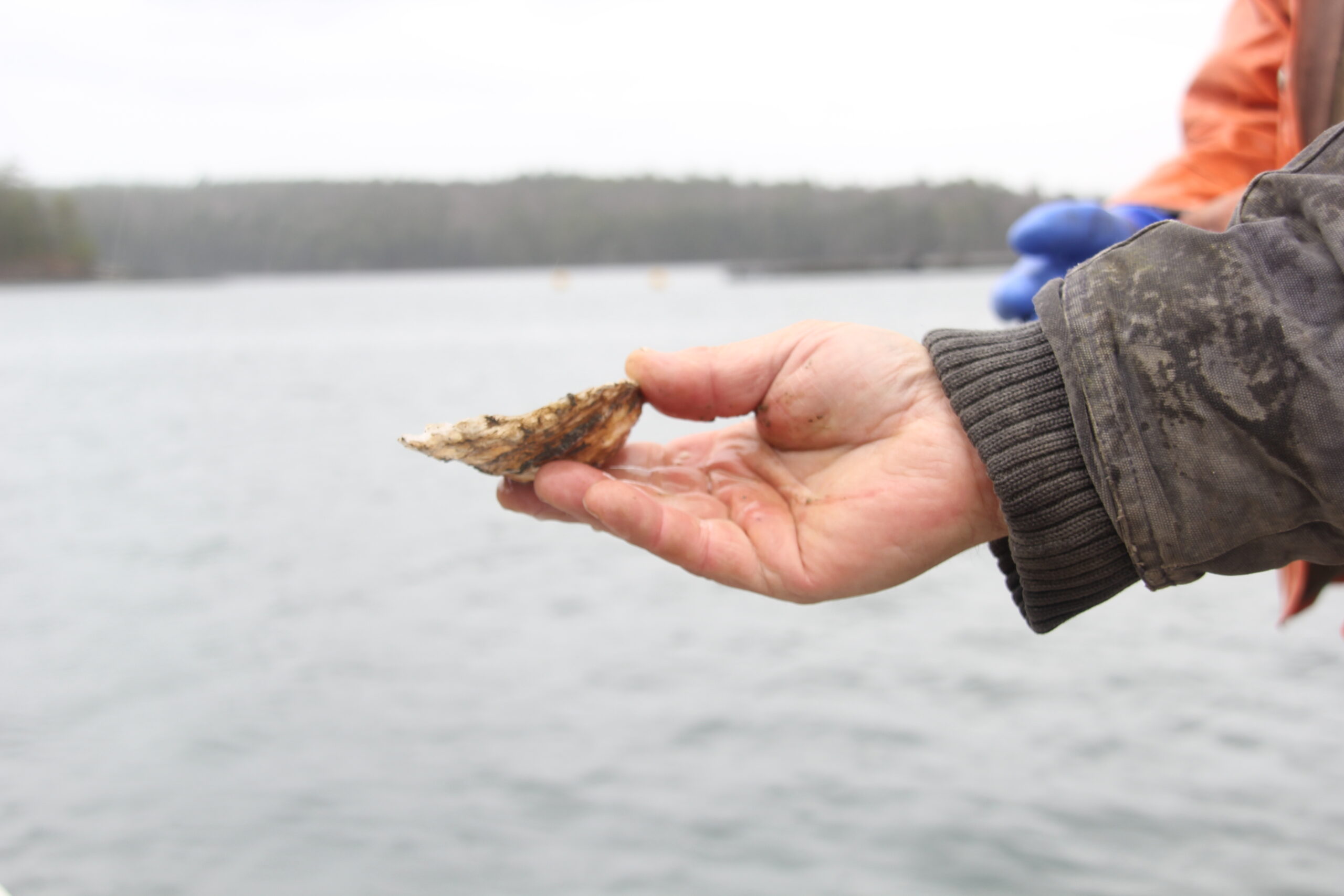
Learning, Information Sharing, and Adoption of Aquaculture in Maine
Project Description
This project contributes to understanding vulnerabilities, assets, and perceptions as they relate to the adoption of sustainable ecological aquaculture in Maine. Researchers aim to understand the factors that lead to the adoption of aquaculture in Maine. The project examines adoption via a study of aquaculture training programs and the documentation of individual experiences related to adoption, or non-adoption, of aquaculture. In addition to pre- and post-course structured surveys and participant observation during courses, researchers are conducting semi-structured interviews with participants in training programs as part of a longitudinal study of adoption.
Adoption is also examined through a case study of the Maine Aquaculture Coop (MAC), a recently formed group made up of commercial fishermen interested in starting scallop aquaculture, to understand the process of integrating commercial fishing and farming as a strategy to enhance social resilience through livelihood diversification. A participatory action research project in partnership with the MAC aims to understand optimal environmental conditions and intermediate grow out techniques for scallop aquaculture by tracking growth rates.
Project personnel aim to better understand the factors that influence social acceptance of aquaculture in Maine’s fishing communities by implementing a mail survey targeting a random sample of Maine commercial fishermen to assess: (a) social acceptance of aquaculture in fishing dependent communities, and (b) preferences and interests related to the adoption of aquaculture by commercial fishermen.
Results and Accomplishments
Based on data collected through structured course surveys, training program participants are similar in age and education level to the average New England lobster harvester and highlight an interest to diversify their commercial fishing operations as a major reason for considering aquaculture. Over 90% of the participants expect to be doing aquaculture within the next 5 years. Major barriers for course participants include elements of gaining the knowledge to start an aquaculture operation (e.g. site selection, finding capital, etc.) as opposed to balancing aquaculture with commercial fishing or dealing with environmental uncertainty (e.g. water quality, disease, etc.). Participants continue to request hands-on opportunities for learning about aquaculture and cite the field trips as a valuable component of the training program.
Summary of Data Being Collected
| Data | Type | Quantity | Location |
| Pre-course structured survey | Quantitative / Qualitative | 29 | Penobscot Bay |
| Post-course structured survey | Quantitative / Qualitative | 15 | Penobscot Bay |
| Confidential stakeholder interviews | Qualitative | 52 | Coast wide |
| Confidential stakeholder interviews | Quantitative / Qualitative | TBD | Coast wide |

